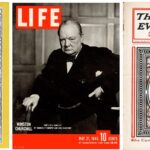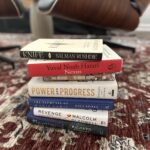![]() A couple of weeks ago, the Federal Communications Commission reversed its ruling of a year ago that basically allowed big media to get even bigger. To me, it was the right thing for the FCC to do. Here is a story in the St. Paul Pioneer Press (as I’m sure it was covered everywhere else as well).
A couple of weeks ago, the Federal Communications Commission reversed its ruling of a year ago that basically allowed big media to get even bigger. To me, it was the right thing for the FCC to do. Here is a story in the St. Paul Pioneer Press (as I’m sure it was covered everywhere else as well).
Last year, the FCC removed ownership restrictions for large media companies, allowing them to get as big as they like. Here is an excerpt from the Press story written by Stephan Lebaton of the New York Times: “The rules, approved last June by a divided FCC, largely removed previous ownership restrictions on media companies. In most markets, they struck down the rule that had prevented one company from owning both a newspaper and a television or radio station in the same city. In the largest markets, the new rules also enabled a company to own as many as three television stations, eight radio stations and a cable operator. And they allowed the largest television networks to buy more affiliated stations, although Congress later rolled back that provision.
“The new rules have already been blocked temporarily by the 3rd U.S. Circuit Court of Appeals, in Philadelphia, which is considering a challenge.
“By a voice vote, the Senate approved a provision to repeal the rules and restore tougher restrictions. Supporters of the effort said that the Senate’s decision provided them with a backstop in case the appeals court does not rule in their favor. But the legislation still faces formidable political obstacles — a similar measure was dropped from a different bill earlier this year after encountering stiff resistance from both the Bush administration and Republican leaders in the House, which would need to reconcile the latest measure in a conference committee.
“”I’m not predicting any greater or lesser success than last time,” Sen. Byron Dorgan, D-N.D., said in an interview after the vote. Dorgan co-sponsored the measure with Sen. Olympia J. Snowe, R-Maine … The media ownership rules, which have been supported by many of the biggest broadcasters and newspaper publishers, provoked widespread opposition from a coalition of consumer, civil rights, labor and religious organizations. The effort to overturn them began as soon as the FCC adopted them last June.”
In an immediate response to the Senate’s overturning of the rules, FCC Commissioner Michael J. Copps had this to say: “We have now heard from the American people, Congress, and the courts. The rush to media consolidation approved by the FCC last June was wrong as a matter of law and policy. The Commission has a second chance to do the right thing. We must immediately move forward and redesign our media policy. This time we must include the American people in the process instead of shutting them out. We must rediscover our respect for core values of localism, diversity, and competition. We must protect and work to expand the multiplicity of voices and choices that support our marketplace of ideas and that sustain American democracy and creativity.
“To do all this we must engage the American people directly and gather a far more complete record of the impact of media consolidation on local communities. Therefore, the FCC should immediately take three steps. First, we should issue a notice confirming that until new rules are adopted, we will continue to apply the limits that were in effect prior to the June 2, 2003 decision. Second, I call upon the Commission to schedule a series of hearings across the country designed to give citizens true access to the decision makers at the Agency, and seek to gain a better understanding of the impact of media concentration on our communities. These hearings should begin immediately, and certainly no later than 30 days from now. Third, we need independent research studies on media concentration in a variety of markets so that we can make a decision that has a more solid foundation. Clearly, the court found that the FCC’s previous studies were inadequate and lacked credibility.
“It would be a great mistake to drag our feet or rehash old arguments. It is time to protect media democracy in America.”





